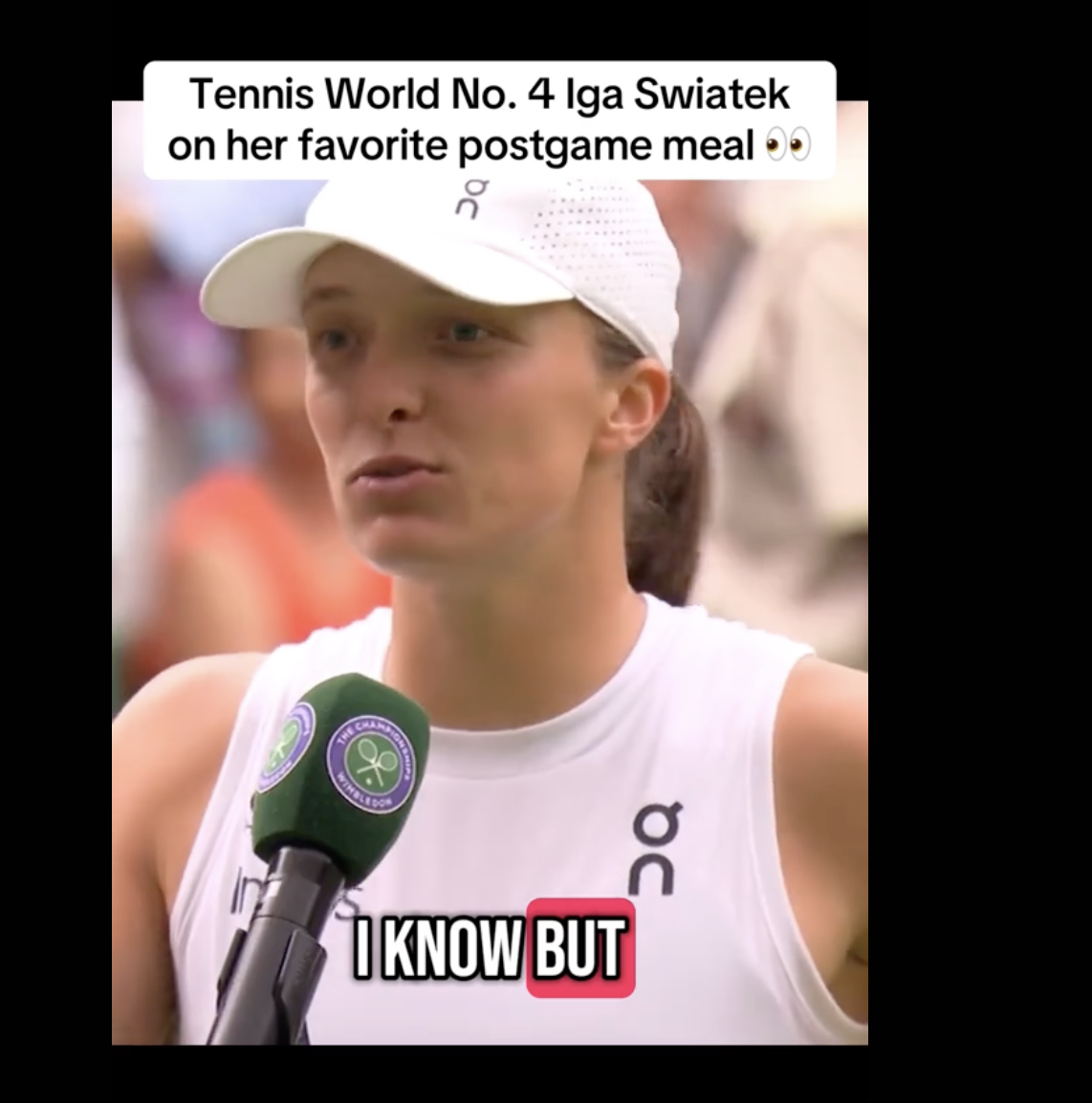I’m All Lost In, #91: Zheng Xiaoqiong, “Migrant Worker Poet;” April Wheeler, nebulous force; Aryna Sabalenka,“She now finds herself in a curious position.”
I’m All Lost In…
the 3 things I’m obsessing about THIS week.
#91
1) Zheng Xiaoqiong
“Zheng Xiaoqiong’s poetry is about global capitalism and income disparity, geopolitics, feminism, wage discrimination, and workers’ rights.” —from translator Eleanor Goodman’s intro to Xiaoqiong’s collection In the Roar of the Machine.
As a weepy white liberal, I’m politically sympathetic to Zheng Xiaoqiong’s proletarian poetry. But I do want her to write more fanciful lines like these: “That hungry machine, every day eating iron, blueprints/stars, dew, salty sweat, it picks its teeth/and spits out profit, bank notes, nightclubs…it sees/” —from Zheng Xiaoqiong’s 2006 poem “Machine” …
and humanist metaphors like this:
“My body contains a vast open plain, a train/is travelling across it, but autumn is in its deep/suffering twilight, and I follow the train’s/meandering path, planting a thousand hawthorn trees in the/wilderness/ … sparse unconvincing shadows/move with the train, one tree, two trees… it stops on the/grey indistinct plain/I say to the trees, this is my friend, my dear one” —from Zheng Xiaoqiong’s 2006 poem “Train”
These are standout verses from the otherwise (a bit too) straightforward and literal protest poetry of Xiaoqiong; she’s a contemporary Chinese poet who’s been dubbed “the migrant worker poet” and who writes immersively about sweating factory floor laborers, global capitalism, her employee badge number, and industrial machinery.
Slumping through the shelves at Elliott Bay Books on Thursday after work—an evening of whiskeys that eventually flowed into my midnight decision to call in sick on Friday—I was about to leave the store without a new book in hand. Fortuitously, I gravitated back to the poetry section one last time. Xiaoqiong’s 2022 survey collection In the Roar of the Machine (published by the elderly and precocious New York Review of Books) stopped me in my tracks. The title itself and a glance at the opening poem, “Life” (“What you don’t know is that my name has been hidden by/ an employee ID/my hands become part of the assembly line, my body/signed over/to a contract, my black hair is turning white, …”) melded with my epiphany for a much needed, self-imposed three-day weekend.
Xiaoqiong’s unencumbered candor about workstations, underarm odor, toil, assembly lines, and “these fragile hearts” didn’t only seem germane to my myopic bad mood, but it also resounded with the week’s bigger picture: Trump’s recent legislative attack on Medicare and crass sop to corporatists.
I’ve since read the entire first sequence in Xiaoqiong’s In the Roar of the Machine , “Huangling” (named after an ancient Chinese village turned “Industrial Zone” for the “floating workforce”), and I’m eagerly onto the subsequent sequences: “Poems Scattered on Machines,” “Woman Worker,” “Rose Courtyard,” and “Finale.”
God bless finales. I can’t wait.
2) Richard Yates’ 1961 Novel, Revolutionary Road (and the 2008 movie version.)
Kate Winslet as April Wheeler in the faithful film adaptation of Yates’ excellent American novel.
More Sylvia Plath than John Cheever (that is, more psychological than theatrical, more drama than drawing room, and more candid than clipped), this mid-20th century domestic tour de force hits all those pull-the-curtain-back-on-white suburbia delights: abortion, infidelity, mental illness, muddling alcoholism, meddling neighbors, and commuter capitalism.
Yates’ knack for conjuring symbolism from the picayune details of marriage, his ear for mastering the desperate internal monologues of flawed strivers, and his skill at crafting fraught backstories that are on a collision course with the future all give Revolutionary Road the weight of “the great American novel.'“ Yates is also a wicked good storyteller, which leavens the hefty themes with a page-turning fever.
Most important, though, Yates has given us a character for the ages: April Wheeler, a nascent feminist and nebulous force whose imprecise daydreams snare those around her in their own delusions. And ultimately, in a collective tragedy.
April Wheeler is perfectly rendered by Kate Winslet in Sam Mendes’ 2008 movie version; after devouring the novel at the top of the week, I had to watch the movie on Friday night. In this faithful film adaptation, Winslet distills what’s ubiquitous in the pages of Yates’ 1961 novel, but isn’t at the fore until we see Winslet’s eerie countenance: whether she’s doing dishes, having cocktails, or inducing an abortion, her demeanor is one of constant disassociation.
One thing that distinguishes Yates’ reflection on the emptiness of monoculture circa mid-20th century America from similar literature such as Cheever’s short stories is that April Wheeler and her clever but merely along-for-the-ride husband Frank aren’t in the process of awakening to the confines of their oppression. They’re onto the American ruse from page one. This is a novel of neither sudden desperation nor liberation, but of dispirited yearning for what’s next.
After easily seducing Shep Campbell, the salt-of-the-earth husband half of the neighborhood couple who serve as the Wheeler’s default besties, April dismisses him in her ongoing state of remove, foreshadowing her inexorable fate.
There was just enough light to show him where her face was, not enough for him to see its expression or even to tell whether it had any expression at all.
“It’s not that. Honestly. It’s just that I don’t know who you are.”
There was a silence. “Don’t talk riddles,” he whispered.
“I’m not. I really don’t know who you are.”
If he couldn’t see her face, at least he could touch it. He did so with a blind man’s delicacy, drawing his fingertips from her temple down into the hollow of her cheek.
“And even if I did,” she said, “I’m afraid it wouldn’t help, because you see I don’t know who I am, either.”
This scene takes place in a parking lot in the back of Shep’s car after the two couples spend an evening drinking and dancing at Vito’s Log Cabin on Route 12, a cheesy jazz club for the masses located off a lonely exurban highway exit. Yates’ literary powers are on full display inside Vito’s, particularly in the chapter’s seemingly desultory opening paragraphs where Yates puts the reader in the mind of another downcast dreamer, a long thwarted and frustrated middle-aged bandleader, the perfectly named Steve Kovick. Kovick’s stumbling career (he peaked 20 years earlier with a Gene Krupa-induced high school performance) seems a concise abstract of the novel’s obsessions with personal disappointment. “He would never play that well again.” There’s also a bittersweet resonance when Kovick’s out-of-date love for swing-era Benny Goodman jazz stirs April’s memories of her lonely teenage years. This moment, which prompts April to ask Shep to dance and then impulsively seduce him, was one of the few joyous moments in the novel.
Mendes gives this scene its due screen time with a dance scene where Winslet’s April Wheeler is more present in life than at any other moment in the film.
3) Sabalenka at Wimbledon (and Swiatek)
“She now finds herself in a curious position. Her consistency at majors—11 semifinal-or-better finishes at her past 12—is remarkable. But her record when things get tight in those late stages is unspooling. She is now 3-9 in deciding sets of semifinals and finals at the Grand Slams.”
So wrote NYT/Athletic tennis beat reporter Matthew Futterman after my tennis hero Aryna Sabalenka went down on Thursday morning 4-6, 6-4, 4-6 in a two-and-half hour Wimbledon semifinal thriller against ascendant American Amanda Anisimova (ranked No. 13).
Nothing curious about it if you ask me. Sabalenka’s Charlie Brown clouds have been apparent from the first time I watched her on television (the 2023 U.S. Open).
To be fair, the folding-under-pressure rap isn’t quite accurate. Sabalenka has won her last 14 tiebreakers in a row. And she did overcome the “dark arts” of trickster Laura Siegmund (No. 102) in a wild Wimbledon quarterfinal match; I woke up at 6 am on Tuesday morning before work to tune in. But her predictable flame outs at Grand Slams are adding up. Despite a stellar year to date (securely World No. 1 by 3,700 points, and the first player on tour to already lock a spot at the elite year-end WTA finals), Aryna Sabalenka has flopped on the big stage again. Here’s her post-match press conference where she jokes “Are you guys waiting for something? You’re not going to see a ‘Roland-Garros press conference’” —a reference to last month’s meltdown at the microphone.
Maybe it was a good thing Sabalenka didn’t make the final. Poland’s Iga Swiatek, the previous World No. 1, who has mysteriously plummeted during her own lackluster year, returned to her phenomenal early-2024 form just in time for this Wimbledon fortnight. She barrelled through the tournament without dropping a set on her way to an emphatic 6-0, 6-0 final win over Anisimova on Saturday.
Iga also won over hearts this week in her on-court interview after a third-round 6-2, 6-3 win against Danielle Collins (yay, can’t stand Collins) when she revealed that her favorite dish was pasta with strawberries and yogurt.
Iga Swiatek talks about pasta and strawberries at Wimbledon, 7/5/25



